Sreelatha Menon in New Delhi
Earlier this week, the Empowered Group of Ministers approved the draft of the Food Security Bill, which will entitle 75 per cent of rural households and 50 per cent of urban households to subsidised foodgrain.
Considered the most important legislation after the United Progressive Alliance's job guarantee scheme, it has generated controversy for committing the government to an expensive entitlement scheme and for relying on the existing inefficient Public Distribution System.
Gavin Wall, the Food and Agriculture Organisation's Representative in India, suggests that it may not address food security as universally understood.
...
New food bill may not ensure food security
The Food Security Bill is close to becoming law. It is based on a concept of subsidised food distribution. What do you think of the Bill and of the public distribution system (PDS) here as a way to ensure food security?
What we see is that the government is using a rights-based approach on a number of issues. In Right to Information it has been a success, and even Right to Education is viewed as successful.
As a measure of principle to institutionalise the right to food is more complicated. It does not mean that it is the government's job to ensure food on everyone's table.
The concept is that of the government assisting people who need assistance.
...
New food bill may not ensure food security
There has been much debate on the issue of whether it should be universal. What do you think?
I have been following the debate on where one should draw the line between the poor and not poor, or people who deserve subsidised food and those who don't. When we seek to draw a line we can make two mistakes.
One is to give it to those who don't need it, and the other is to eliminate those who need help.
The fiscal hawks would say one should design a system that does not give aid to those who don't deserve it. But I feel that is a lesser sin compared to eliminating those who deserve.
...
New food bill may not ensure food security
Photographs: Amit Dave/Reuters
Is the PDS a unique formula as practised in India?
The way it is done here is unique in that it is focusing on two grains, wheat and rice. Others don't focus on a particular food item.
Other countries would focus on just having fair price shops where everything is available at a cheap price.
You may be aware of the leakages in the PDS. What do you think is the best way to fix it, before the food security law is enacted? Do you think PDS shops should be shut down?
I believe that giving multiple choices to beneficiaries through multiple vendors is a solution many countries have opted for.
So if you don't like a particular shop, you can always go to another. Food coupons have been used in many places to access subsidised food in multiple shops.
...
New food bill may not ensure food security
Photographs: Reuters
What is your view of this focus on rice and wheat as a concept of food security?
When we talk about food security, we talk about access to food that enables people to lead a healthy lifestyle. The international definition of food security captures the idea of dietary diversity.
One of the issues in the context of India is the alarming nutritional outcomes. Of course, we all know we have food inflation, especially in the case of dairy products, fruit and vegetables, which are very important for dietary diversity.
We don't want to criticise the government. What we are saying is that let us talk about food more broadly. Let us ensure that we also talk of nutrition.
Nutrition indicators are a problem. Experts say the physical and mental development of children who are not fed well in the first year suffer inadequate physical and mental growth.
...
New food bill may not ensure food security
Photographs: Reuters
Would you say India has lost an opportunity to address nutrition issues with a lopsided food security definition?
I can't comment on that. Besides, I would rather say this Bill is not a once-in-a-lifetime opportunity to address the matter of food. There is also the concept of cash transfers and cash coupons to help people access other food components later.
There can always be an amendment to the law to allow this. I don't see this as doors closed forever but see it as new doors opening before us even after this Bill becomes law.
There has been a lot of resentment about agricultural land being acquired for infrastructure and real estate. Do you think this compromises food security?
Conversion is a fact of life. As we progress, urbanisation is a reality we have to accept. States have to put in place their systems to deal with this issue.P>...
New food bill may not ensure food security
Farming has become unattractive to farmers because profits are low despite high market rates. There are suicides and indebtedness. It is driving away people from agriculture.
The government may argue that the minimum support price is designed to make farming profitable. It is important that farming is profitable not only from human rights or social perspective but also from food production perspective.
Farmers need money if they are to invest in improving agriculture, in improving agronomic practices, creating business links.
Compare the yield of a research field and that of the farmers and there is a huge gap. This has to be reduced.
There is the issue of supply chain efficiency also. Here private players have to get in. The gap between farmers and the markets is large. There are too many players in between.
An Asian Development Bank loan programme is currently trying to explore how to improve supply chain efficiency in central India.
...
New food bill may not ensure food security
Were you surprised to see the large quantities of foodgrain rotting in the open while you heard of malnutrition and poverty here?
When you come to India one thing you understand is scale. The government is holding 60 million tonne of foodgrain. Engaging the private sector alone can help. There is no reason to say only the government should handle the storage and distribution.
Private parties should bid for certain states and they could then invest in storage. One has to be sympathetic to the dilemma of the agriculture minister here. Each day he takes immense risks as he decides on these things.
Do you think public private partnerships are the way out?
It is about looking at new ways of doing things. If it is storage, building huge silos to store grains represents a certain scale of investment the government cannot afford. But private parties can see advantage in investing in it.
The approach of giving multiple choices to people ensures minimum leakages since there would be competition.

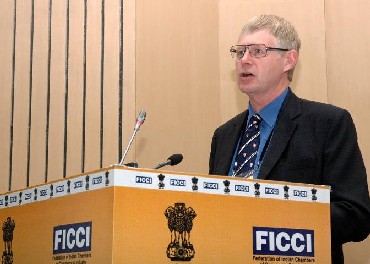
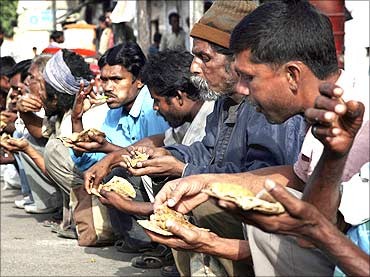
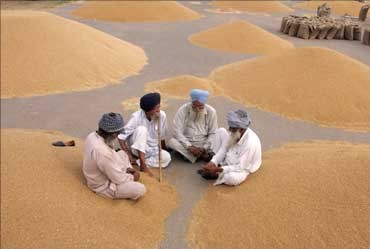
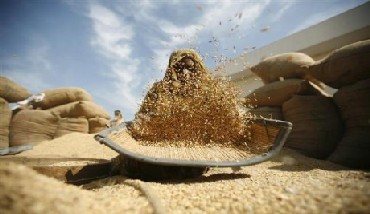
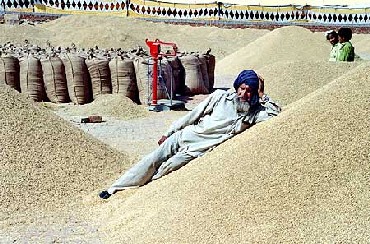
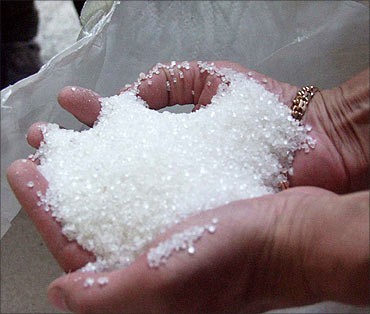
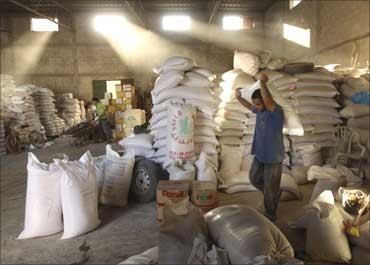
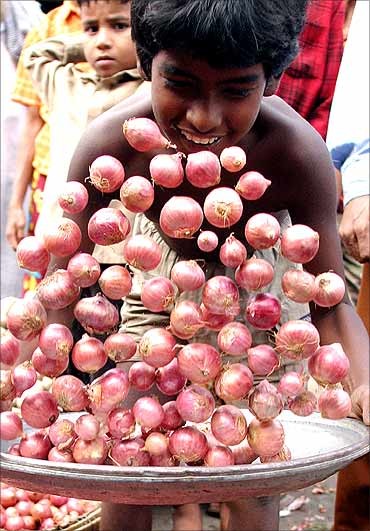

article